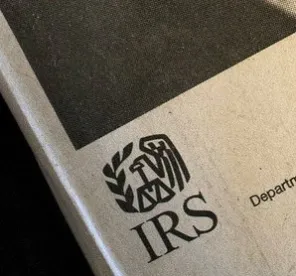Since the pandemic began in March 2020, IRS Collection has taken efforts to assist taxpayers facing financial challenges, including holding off on taking enforcement action against many taxpayers. However, the gloves come off on June 15, 2021. Beginning June 15, the IRS will begin issuing Final Notices of Intent to Levy. Enforcement action, including levies on wages and bank accounts, will begin 45 days after issuance for taxpayers that have not resolved their accounts. In addition, you can expect federal tax liens to be filed in cases that meet certain criteria. Resolving your tax debt early in the process can help alleviate the burdens caused by these actions.
But that is not all that IRS Collection is doing. According to Darren Guillot, IRS Small Business/Self-Employed Deputy Commissioner for Collection, the IRS is continuing its collaboration with the IRS Office of Fraud Enforcement which stood up in March 2020. With this collaboration, the IRS has been able to effectively and efficiently refer cases to the IRS Criminal Investigation Division. Case referrals are taking half the time they did in the past, which has resulted in more cases being referred than before. In addition, historically, most of the referrals to Criminal Investigation from IRS Collection have been employment tax cases. However, IRS Collection is now referring high-income non-filing cases as well.
The IRS is responsible for collecting almost 95 percent of total federal revenue through its compliance and collection activities. Current enforcement activities and programs at the IRS include the following:
-
HiDeF/Operation Surround Sound. These enforcement efforts are geared towards high-income non-filers. Taxpayers that fall within this program have an income of $100,000 or more and have not filed federal income tax returns.
-
Operation Liquidation. This effort involves the IRS Insolvency Unit. Insolvency is looking into taxpayers that file bankruptcy and matching taxpayer disclosures to FATCA information and other information obtained through data analytics.
-
Ghost Employer Project. A Ghost Employer is one who issues Forms W-2 to its employees, but who has not filed those forms with the Social Security Administration and has not filed employment tax returns, Form 941 and Form 940, with the IRS. Both the IRS Examination Division and IRS Collection are working these cases and making criminal referrals in these cases.
-
Repatriation Suits. IRS Collection is using FATCA and data analytics to locate foreign assets held by taxpayers. Once located, they are working with IRS Chief Counsel and the Department of Justice to pursue mutual collection assistance requests with U.S. Treaty Partners.
-
Cryptocurrency Projects. The message is clear from Darren Guillot. "The IRS knows if you have virtual currency…. Taxpayers need to tell the truth [about their virtual currency]." More information about IRS cryptocurrency enforcement efforts can be found here.
If you fall within any of the IRS's current enforcement priorities, or if you have unpaid taxes or unfiled returns, you need an experienced tax attorney to represent you in your dealings with the IRS or the Department of Justice.




 />i
/>i

